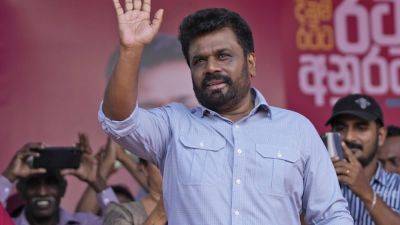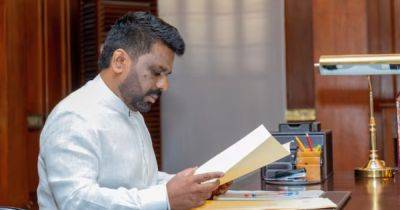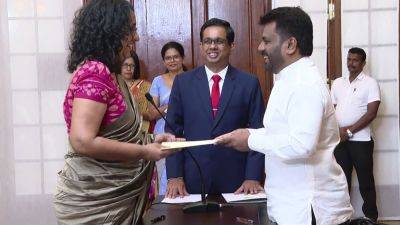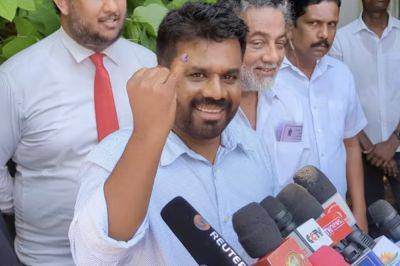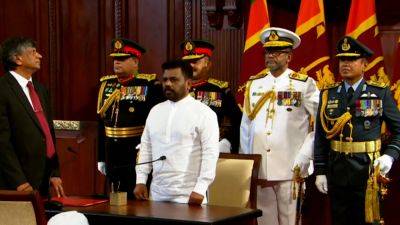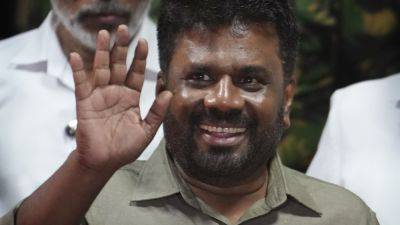Marxist-leaning Dissanayake wins Sri Lanka’s election: What’s next?
From an IMF deal he wants to renegotiate to parliamentary elections, president-elect faces key challenges.
Marxist-leaning Anura Kumara Dissanayake has taken office as Sri Lanka’s president shortly after winning the country’s election.
Dissanayake, who was sworn in on Monday after winning Saturday’s polls, has inherited the top job in a nation battered by austerity measures imposed as a part of a bailout deal with the International Monetary Fund (IMF).
These austerity measures — hikes in income taxes and electricity prices — were introduced under outgoing President Ranil Wickremesinghe.
Wickremesinghe took over as leader after his predecessor Gotabaya Rajapaksa was ousted in 2022 following the country’s economic collapse and amid mass public protests that Dissanayake and his political party, the Janatha Vimukthi Peramuna (JVP), were part of.
In his inauguration speech, Dissanayake pledged “cleaner” politics. “People have called for a different political culture,” he said.
“I am ready to commit to that change.”
Here is what’s next for Sri Lanka under Dissanayake.
Dissanayake, 55, won the presidency with 55.8 percent of the vote in the second round. His closest rival, Sajith Premadasa, got the remaining 44.2 percent of the vote. In the first round, Dissanayake failed to secure the 50 percent needed for victory but finished first with 42.3 percent support.
He took the oath of office at the Presidential Secretariat building in Colombo two days later.
His party is part of the National People’s Power (NPP) alliance, which he leads. The JVP led antistate insurrections in the 1970s and 1980s.
Dissanayake was first elected to parliament in 2000. The JVP has never been close to power in the past, and Dissanayake won just 3


